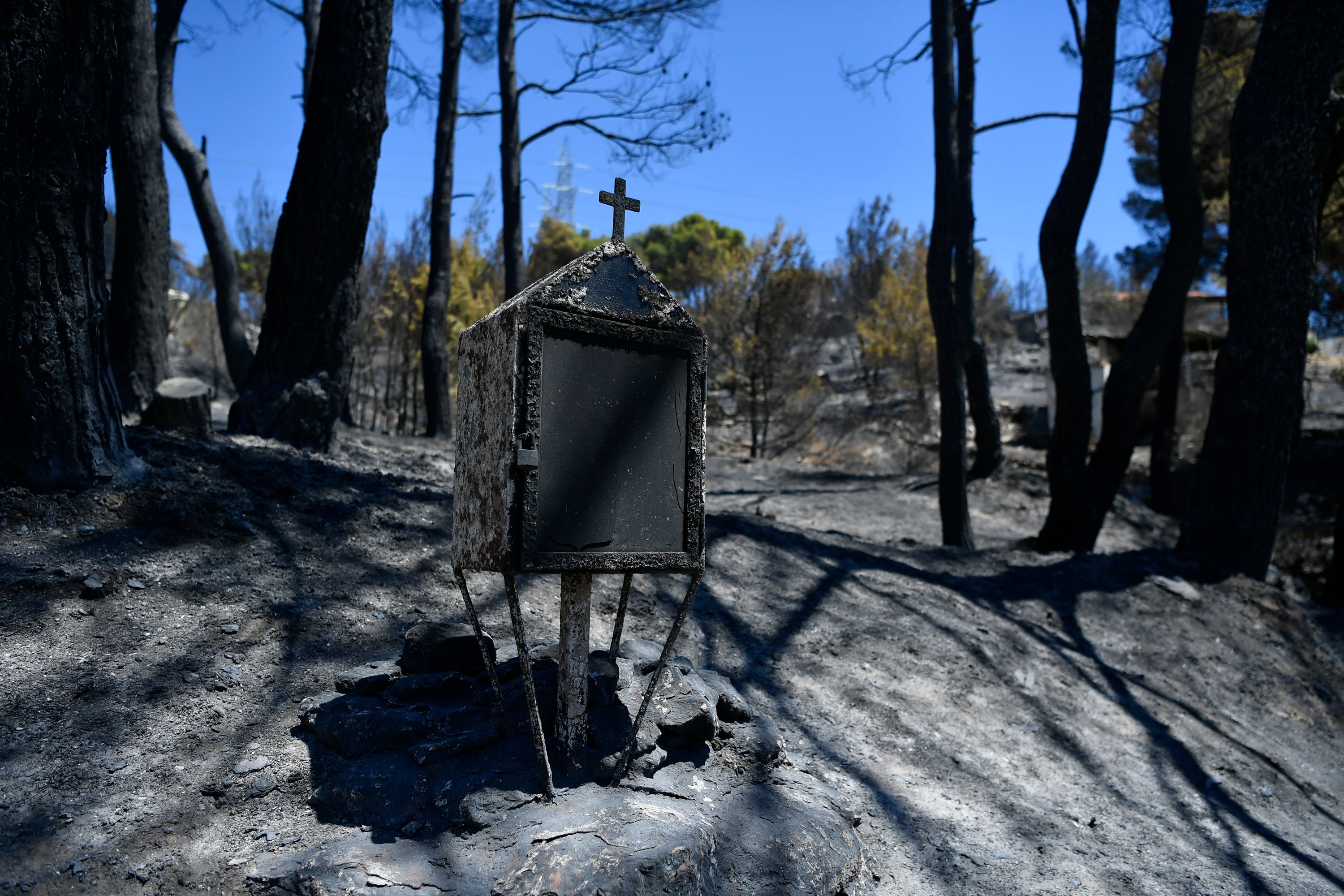Fires rage for eighth day on Portuguese tourist island as EU sends help
The Atlantic island of Madeira has been on alert for high temperatures and risk of wildfires for days

Your support helps us to tell the story
From reproductive rights to climate change to Big Tech, The Independent is on the ground when the story is developing. Whether it's investigating the financials of Elon Musk's pro-Trump PAC or producing our latest documentary, 'The A Word', which shines a light on the American women fighting for reproductive rights, we know how important it is to parse out the facts from the messaging.
At such a critical moment in US history, we need reporters on the ground. Your donation allows us to keep sending journalists to speak to both sides of the story.
The Independent is trusted by Americans across the entire political spectrum. And unlike many other quality news outlets, we choose not to lock Americans out of our reporting and analysis with paywalls. We believe quality journalism should be available to everyone, paid for by those who can afford it.
Your support makes all the difference.The European Union sent two water bombing planes from Spain to the Portuguese island of Madeira on Thursday to help efforts to put out a wildfire that has been raging for eight days.
The blaze, which started on 14 August, has burned nearly 12,355 acres of vegetation, mostly in mountainous areas with steep slopes and difficult access.
Portugal requested assistance via the EU civil protection mechanism RescEU. EU authorities provided the two Canadair planes and said the bloc stood ready to deploy additional resources if necessary.
Regional government chief Miguel Albuquerque said the planes would join the firefighting effort on Thursday afternoon.
“These planes, which dump 6,000 litres of water, will be only used to tame the fire in the central mountain range. They cannot be utilised in urban or agricultural areas,” he told the state broadcaster RTP.

Firefighters, backed by a dozen vehicles and a helicopter were tackling the blaze in the central mountain range and in Ponta do Sol, on the southern coast. Both fronts are on high ground and away from residential areas.
The Atlantic island of Madeira – an autonomous region of Portugal with around 250,000 residents, and which is a popular tourist destination – has been on alert for high temperatures and risk of wildfires for days.
Rising global temperatures due to climate change have led to more frequent wildfires, from southern and eastern Europe to North America and parts of Asia.

Meanwhile, in Greece, the government said on Tuesday it would offer emergency compensation totalling millions of euros to hundreds of households and businesses affected by a blaze that killed one woman and burned 10,000 hectares near Athens.
The blaze began on 11 August near the town of Varnavas, 22 miles from the capital, and within a day reached the city’s northern suburbs on the slopes of Mount Penteli, one of the closest forests to the capital.
Inspections so far have identified some 146 houses severely damaged, with 31 businesses also affected.
Authorities will offer up to €150,000 to households, 80 per cent in government aid and 20 percent in interest-free loans, and up to €500,000 to destroyed businesses, the finance ministry said in a statement.
It was not immediately clear how much the state had budgeted for compensation, but a government official told Reuters that the amount would exceed €30m, including €5.2m of extra subsidies to affected municipalities.
Join our commenting forum
Join thought-provoking conversations, follow other Independent readers and see their replies
Comments